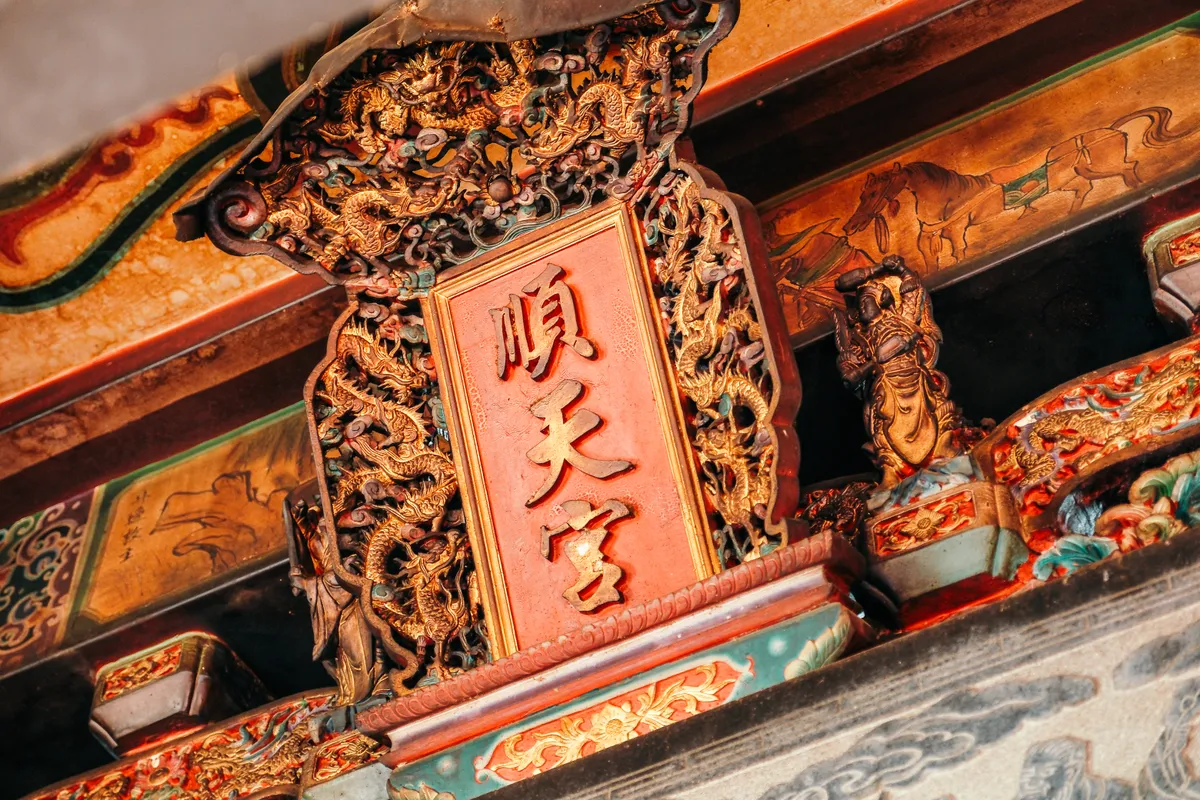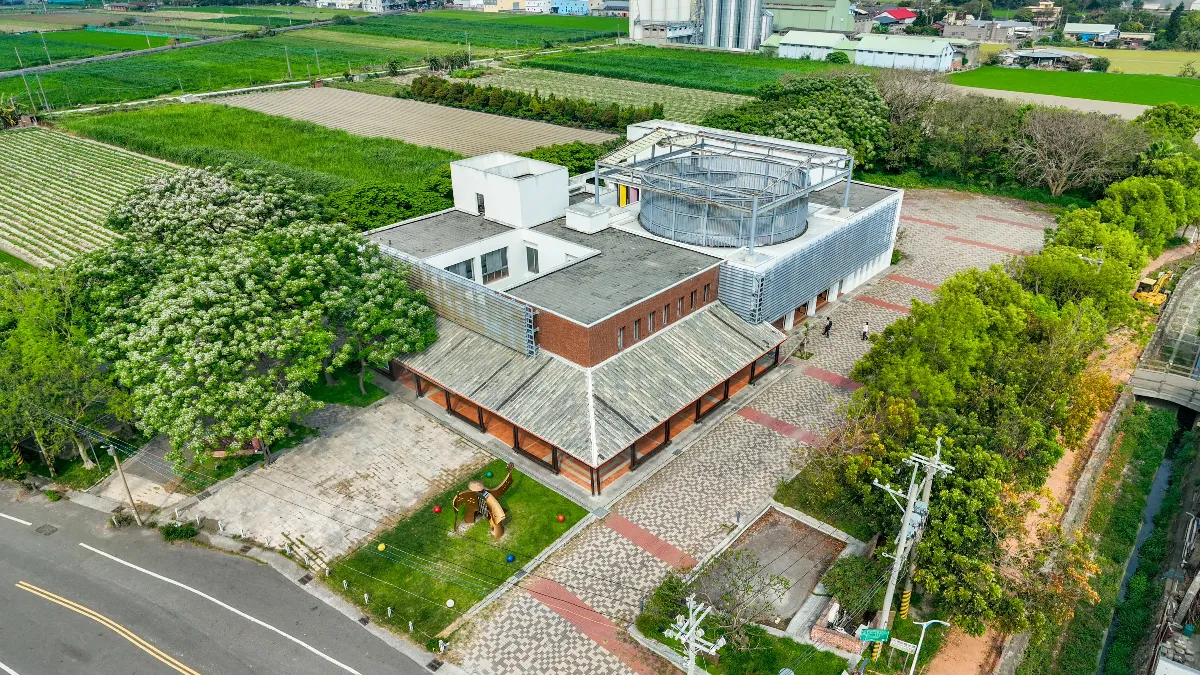
Follow the narrow path into Gangwei Village and the first thing that catches your eye is Shuntian Temple, always alive with worshippers and the scent of incense. Dedicated to Holy Emperor Guan, the temple watches over this land where early settlers once gathered. Its deep connection to the tradition of Qikan martial arts is rooted in both history and faith.
In the late Qing dynasty, to defend against bandits and external threats, 25 villages across Lunbei, Xiluo, and Erlun formed a united defense network known as Qikan. They invited Liao Jinxing, a martial arts master from their ancestral homeland, to come to Taiwan and train the villagers. He established the Jinshi Lianzhen Martial Arts Hall and introduced the lion dance techniques of the open-mouth lion to Gangwei Village. Over time, this developed into a local martial arts system known as Qikan Martial Arts. Unlike formal training halls, this martial arts hall functioned more like a community gathering space. After dinner, villagers would come to Shuntian Temple to practice lion dance formations and drumming together.
Today, Qikan Martial Arts has shifted from a defensive necessity to a treasured part of local cultural heritage. The sight of people practicing martial arts at the temple has never truly disappeared. It simply follows a new rhythm, passed down from local masters to the younger generation.


 Yunlin Lunbei
Yunlin Lunbei Zhao’an Hakka Cultural Hall
Zhao’an Hakka Cultural Hall Chan Chau Ku Happy Moo Ranch
Chan Chau Ku Happy Moo Ranch Chongxian Temple in Shuibiantou
Chongxian Temple in Shuibiantou Sing Chang Koi Farm
Sing Chang Koi Farm
















